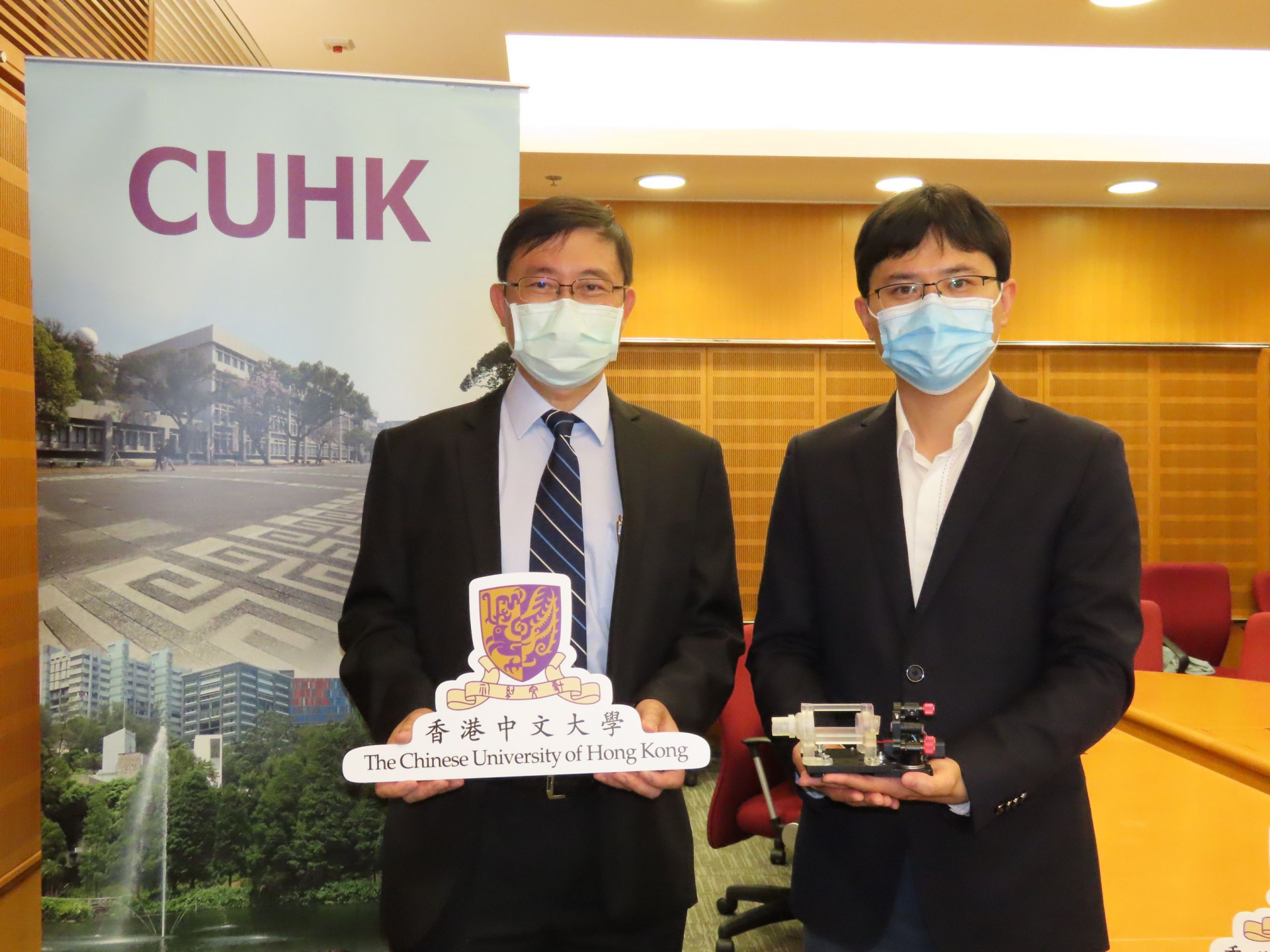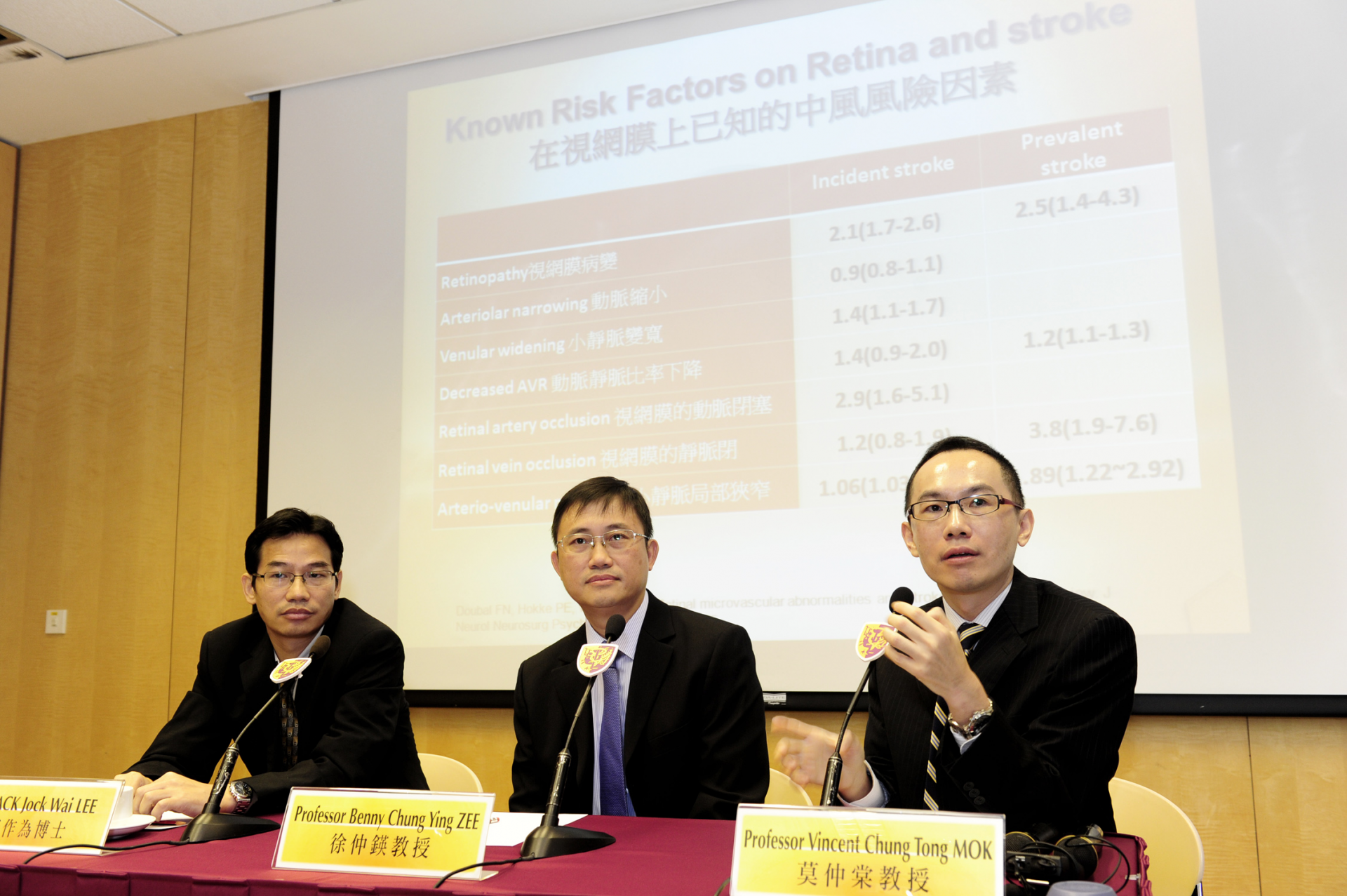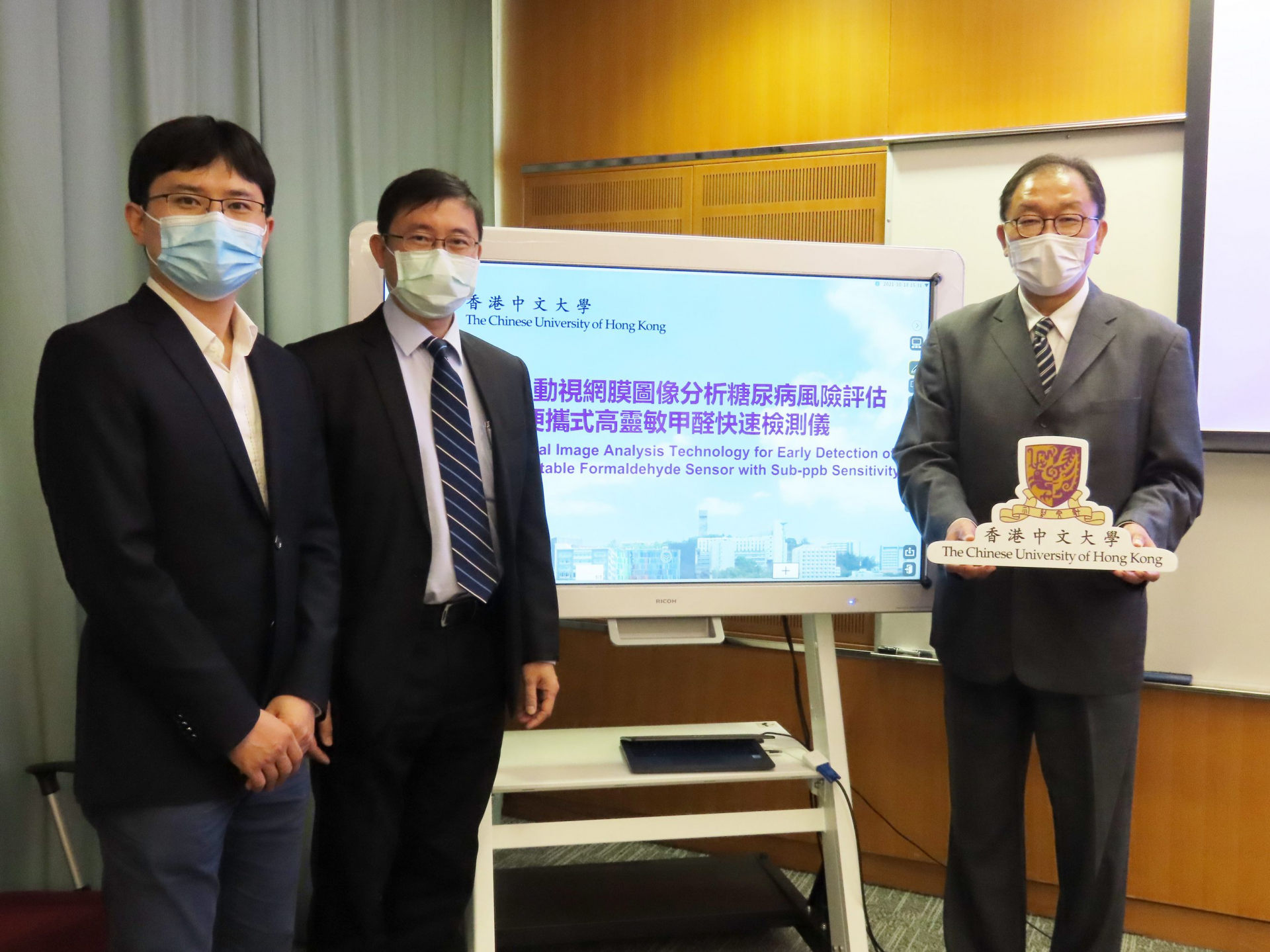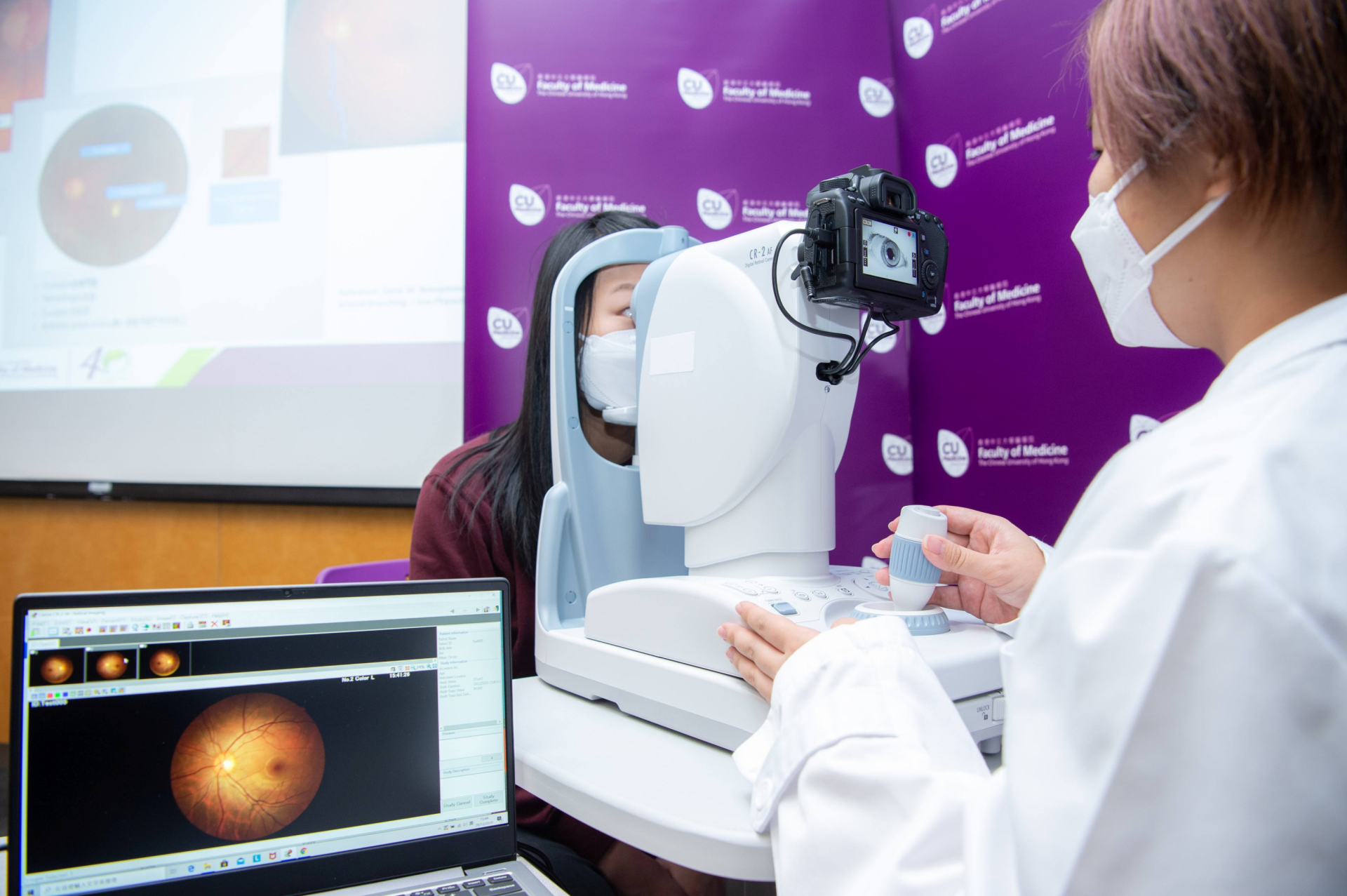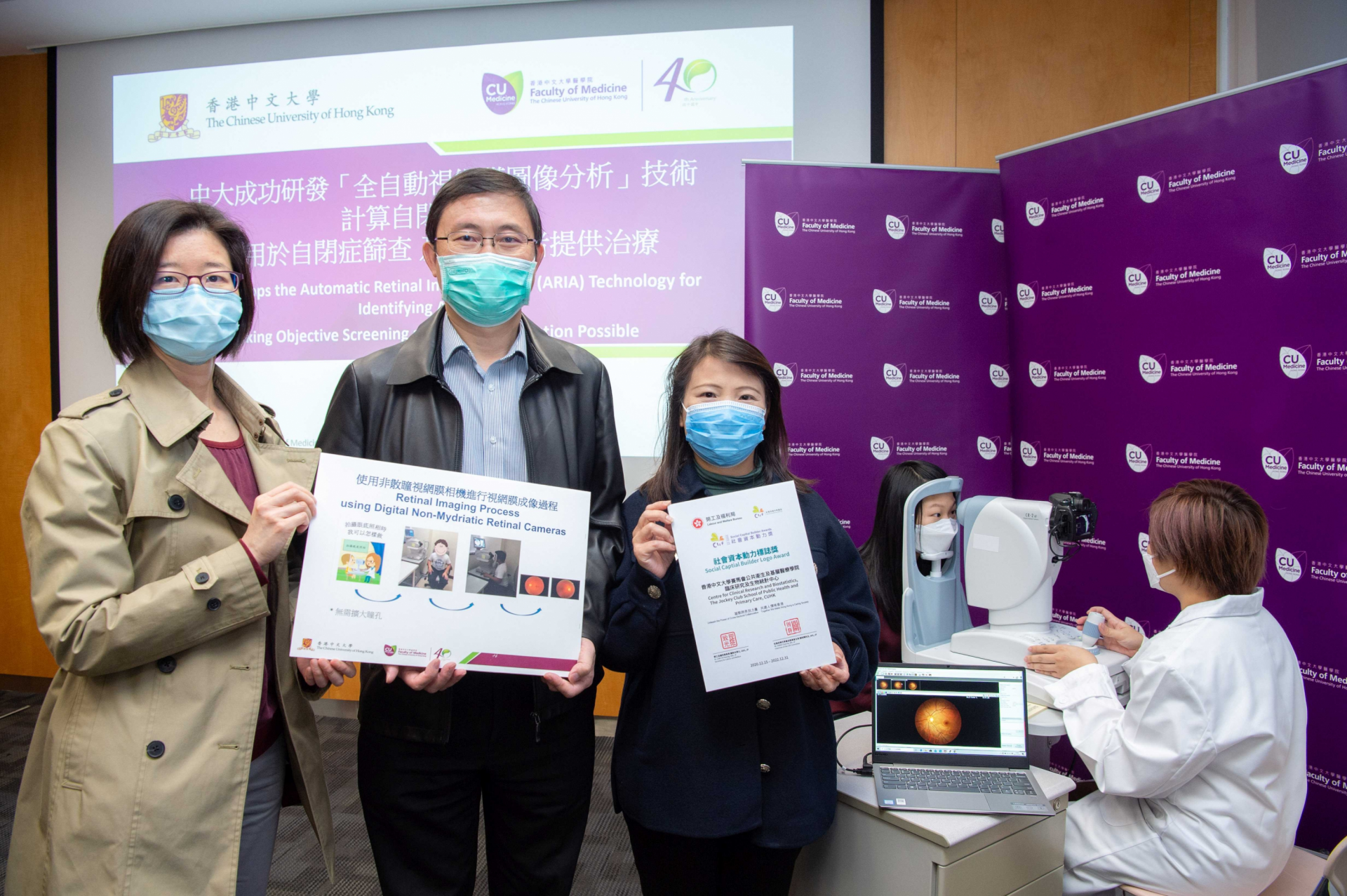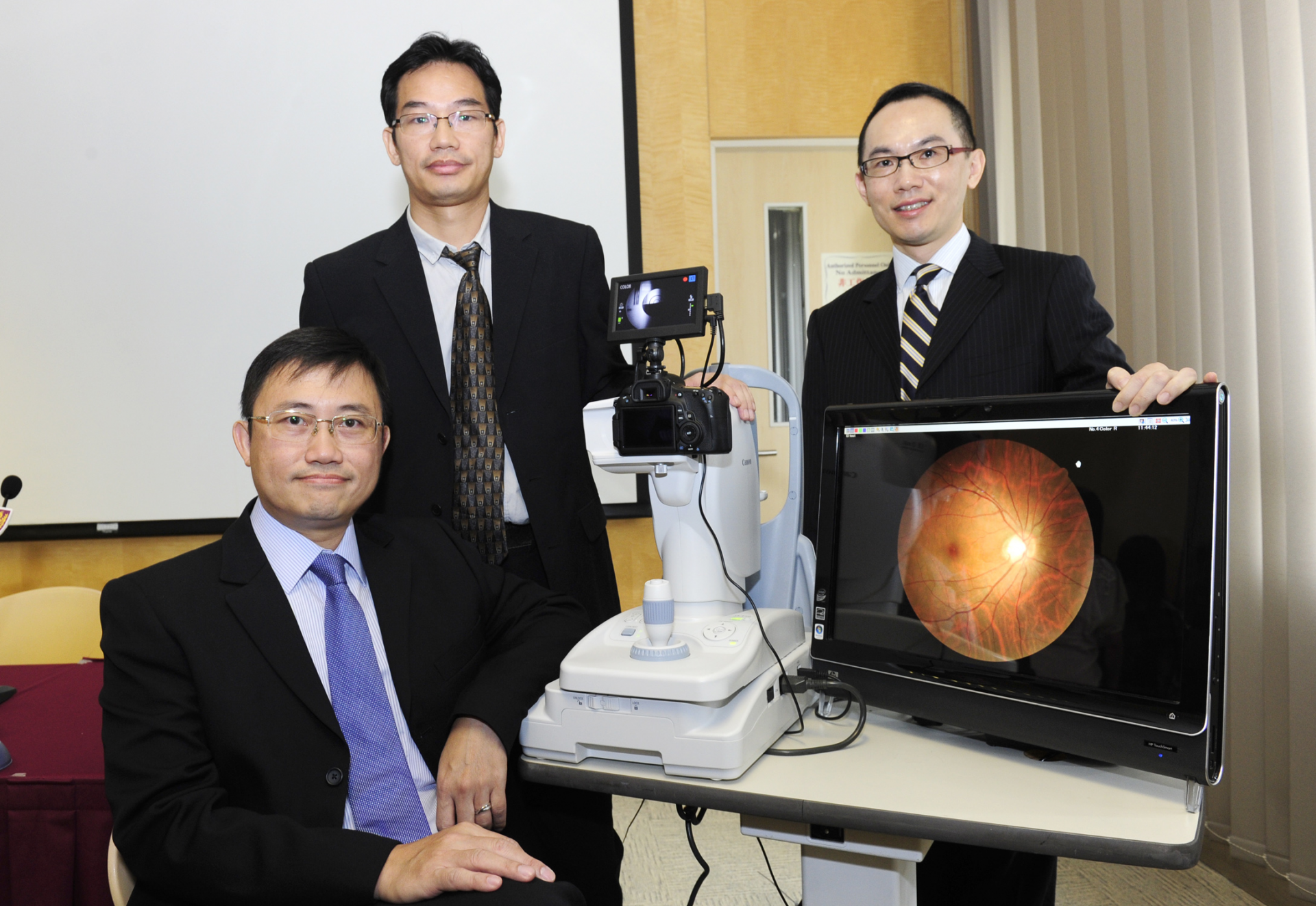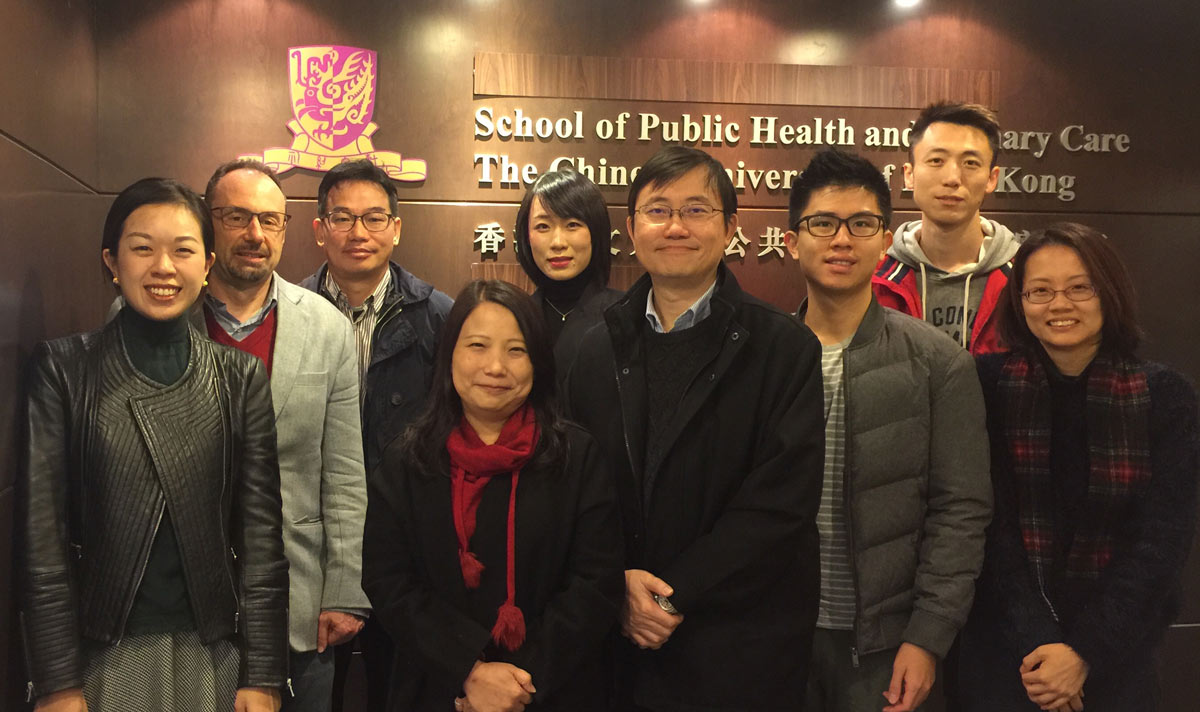INNOVATIONS
ARIA for Common Chronic Diseases: Peeping Through the Window to the Soul and Sickness
Innovations & Impacts
Cardiovascular diseases, diabetes and stroke are three of the many public health concerns that threaten our ageing population. The world is calling for effective health screening and monitoring to provide timely information concerning our health risks so that we can make the necessary lifestyle changes for better health. Nevertheless, current screening tools, such as drawing blood samples or collecting body fluids, may be cumbersome and time-consuming. Some of these tools are expensive, while others require specialised personnel that cannot easily be found.
Prof Benny Chung-ying ZEE of the Jockey Club School of Public Health and Primary Care has developed a risk assessment tool – automatic retinal imaging analysis (ARIA) – a fully automated platform for the non-invasive assessment of these common chronic diseases. The system involves a cloud-based computing platform that exploits the capabilities of artificial intelligence in order to achieve high accuracy. Fully automatic, non-invasive and simple to use, the tool generates risk estimates on stroke and other blood vessel related diseases by taking retinal images with a fundus camera. Analysis against their existing clinical database could be done in two to three minutes.
The patented technology invented in 2012 has extended its use by Professor ZEE’s startup company Health View Bioanalytic Limited initiated by the Technology Start-up Support Scheme for Universities (TSSSU) in 2015. By enabling early public health intervention, including lifestyle modification, diet and nutrition supplement, proper exercise and medication where necessary, the technology can reduce the likelihood of the development of serious chronic illness. The method is also ready to be implemented in a mobile-health environment using iPhone or smartphone fundus technology.
To take a step further, Professor ZEE brings his technology to the community through outreach services supported by the Knowledge Transfer Project Fund (KPF). The team offered free-of-charge screening services with the ARIA tool as well as health talks in community and elderly centres, serving over 3,000 individuals for the purpose of raising their awareness of health risks and thus making changes in their diet and lifestyle. The project demonstrates how technology and social innovation can work together for public well-being.

From Research to Market
-

IP & LICENSING
-

ENTREPRENEURSHIP
-

RESEARCH
-

SOCIAL IMPACT & PUBLIC ENGAGEMENT
Upon Professor ZEE’s discoveries and innovations, the technology has obtained US, China and Taiwan patents in 2014 and 2017 respectively.
Supported by TSSSU, Health View Bioanalytic Limited (HVB) was established in 2015. The startup was later admitted to the Incu-Tech Programme supported by the Hong Kong Science and Technology Parks Corporation (HKSTP). HVB provides novel technologies, Automatic Retinal Image Analysis (ARIA) method for health promotion in the general population. The startup’s target users include rehabilitation centers, health centers, optometry shops, large enterprises, community health centers, general practitioners, nursing homes and so on.
Professor ZEE has strong interest in various aspects of multi-center clinical trials, including statistical methods, data management, drug and medical device development. He is active in medical devices development and has devoted himself to the study of ARIA for more than ten years. Professor ZEE’s discovery of ARIA technology and its use as a risk assessment tool for autism screening was published in the journal EClinicalMedicine published by The Lancet in 2020.
With the support of KPF in 2018, Professor ZEE has launched the “Innovative Healthy Lifestyle Promotion Programme with ARIA.” Nearly all participants agreed that they were more aware of their health risks and were consequently more willing to take concrete action to prevent chronic diseases, such as making changes in their diet and lifestyle.
Later in 2020, Professor ZEE received another KPF funding for his project “Youth AI Health Ambassador Training and Outreach Program for Brain Health,” in which the team trains a group of health ambassadors with the aid of ARIA brain health assessment to communicate with the community about the risks of dementia before symptoms occur. The team strives to strengthen public knowledge of brain health via health education activities by building up a team of young ambassadors to serve relatively underprivileged and hard-to-reach participants.
For its efforts in bringing social impacts, the team has been recognized with the Outstanding Social Capital Partnership Award and Social Capital Builder Logo Award under the Community Investment and Inclusion Fund (CIIF) managed by the Home and Youth Affairs Bureau.
Media
-
新冠康復者增患上認知障礙症 專家建議盡早檢測
2022 -
中大醫健園|視網膜圖像分析 早察長新冠風險 防腦部後遺症
2022 -
CUHK Develops Automatic Retinal Image Analysis Technology for Identifying AutismMaking Objective Screening and Early Intervention Possible
2021 -
30 CUHK Research Projects Displayed in Technology Exhibitions Project highlights: Automatic Retinal Image Analysis Technology for Early Detection of Diabetes and Portable Formaldehyde Sensor with Sub-ppb Sensitivity
2021 -
Automatic Retinal Image Analysis (ARIA) for Autism Spectrum Disorder
2021 -
HK scientist develops retinal scan technology to identify early childhood autism
2021


















